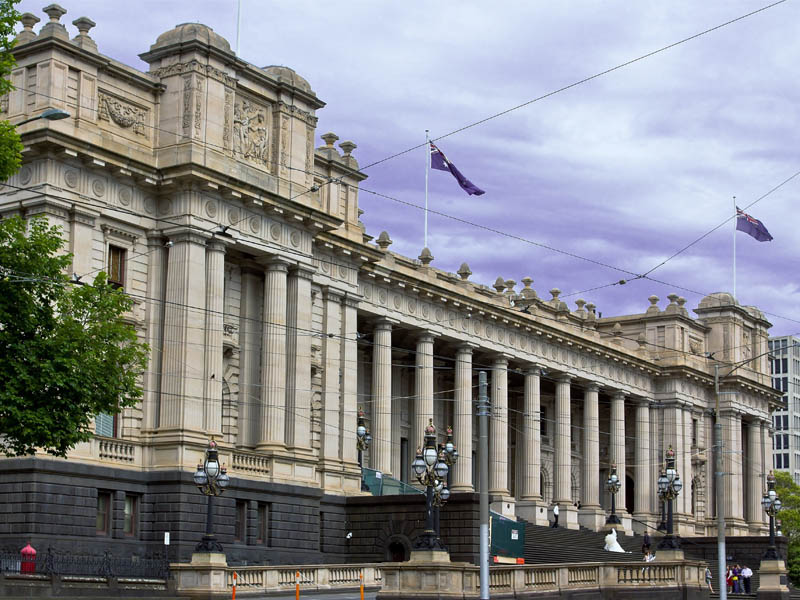The Victorian Government could “fill the democratic void” in gig economy regulation left by the “inertia” at the federal level, according to a submission to a Victorian inquiry from the Centre for Future Work think-tank.
In December last year the Victorian government launched a landmark inquiry into the on-demand economy, with a focus on whether workers were being paid enough, if the work was safe, and whether there were adequate protections in place.
The near-100 submissions to the inquiry have now been publicly released, with a number of industry groups and unions calling for the state government to lead the way and introduce stricter regulations on gig economy companies and better protections for workers.

In contrast, gig economy giants like Uber, Deliveroo and Menulog have warned against Victoria taking action in isolation without coordination with the rest of the country.
The inquiry will hand its report to the state government by the end of the year, and is likely to recommend legislative changes.
“We’re all benefitting from the gig economy – there’s probably very few Victorians who haven’t used their services – but we can’t allow convenience to get in the way of a fair go for workers and businesses,” Victorian treasurer Tim Pallas said.
While the federal government was responsible for employment and industrial relations matters, the Centre for Future Work has argued that the Victorian government still has “considerable opportunities” to take action.
“With diminished jurisdiction over most employment and industrial relations matters, states face obvious constraints in considering solutions to contemporary labour market problems, like the problems of on-demand work,” the submission said.
States still possess considerable opportunities to develop policy responses to many labour market issues.
“Strategically, policy inertia at the Commonwealth level has also placed states in a position to exercise tactical leadership in policy development.
“They have an opportunity to step in and fill the democratic void created by the paralysis and dysfunction of Commonwealth politics, with their own progressive policy initiatives.
“The Victorian government should feel confident in pushing the policy envelope to take a proactive and creative stand on the side of fairness and security for gig workers.”
The UTS Centre for Business and Social Innovation also said state governments could still play a vital role in the crackdown on gig economy companies.
“To date, options for remedying poor conditions in the on-demand economy, based on federal labour law, have been ad hoc and reliant on individual complaints, the UTS Centre for Business and Social Innovation said it in submission.
“However, despite the limitations of Victoria’s legislative powers over industrial relations and related matters, our submission has argued that there is still capacity for the Victorian government to take a proactive stance on the regulation of labour standards in the on-demand economy,” it said.
The state government could look at establishing a health and safety and workers compensation regime for gig economy workers, requiring companies to pay payroll tax on all work-related incomes paid to their workers, funding gig economy workers to complete further qualifications and training, and to better enforce the existing rules, the Centre for Future Work said.
It could also look at providing funding and support for gig economy workers to establish their own “digital dispatch system”, which would “eliminate the power of the ‘middleman’ and give the actual producers a larger share in the total income from the services they product”.
Requiring gig economy firms to provide publicly-relevant data as a condition of the business licence is also an option for state governments, the submission said.
“Policy-makers need access to data from these businesses in order to understand and plan for their impacts on transportation patterns, road safety, community zoning, health and safety issues and other legitimate public policy priorities,” it said.
“It is also incumbent on government to monitor the impacts of on-demand business models on incomes and working conditions of workers, this also requires access to data regarding gross incomes, hours worked, operating expenses and other parameters.”
The large gig economy companies argued against these ideas in their own submissions, warning against state governments taking action on their own.
“A patchwork of incompatible Commonwealth, state and territory laws and regulations risk creating confusion for riders and unfairness in the system, and so we believe that the federal government should work in tandem with the state and territory governments to solve this policy and legal challenge,” Deliveroo said in its submission.
Menulog also argued against Victoria taking its own legislative actions.
“Not only would state-based regulation of this one industry be misaligned to how other industries are governed, but having a different framework for each state would add a level of significant complexity for businesses, couriers, restaurants and ultimately consumers,” it said.
“Menulog is of the view that any Australian state or territory seeking to review regulation of the gig economy should not act unilaterally insofar as how workers providing services within it are classified.”
There is likely to be action at a federal level if there is a change in government after this weekend’s election, with Labor previously having called for tighter regulation of the gig economy and an expansion of the definition of “employee” to include those working in the gig economy.
This push has been rejected by the Coalition, which has continually argued that any further regulation of the sector risks stifling innovation.
Do you know more? Contact James Riley via Email.

